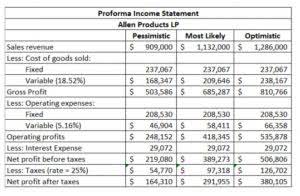
You’ve opened a business checking account, chosen your accounting method, and decided how you’re going to keep your books. As a responsible business owner, you need to record every single financial transaction you business bookkeeping make—so the answer might depend on how many bills you pay and invoices you send out. At the very least, you’ll want to sit down for bookkeeping monthly, but we strongly recommend you update your books at least weekly, though preferably daily.

of customers agree Xero is easy to use
Occasionally, we may need additional documents, such as account statements or receipts, to ensure the information we have is accurate. Sharing files with Outsource Invoicing your bookkeeping team is quick and easy—just upload the document, and we’ll handle the rest. Our intuitive software automates the busywork with powerful tools and features designed to help you simplify your financial management and make informed business decisions.

Why does a small business need a bookkeeper?
She has also held editing roles at LearnVest, a personal finance startup, and its parent company, Northwestern Mutual. You could go with one of dozens of popular cloud accounting solutions, like QuickBooks, Xero or Wave. However, if you don’t have a lot of bookkeeping experience (or don’t have time to learn), they could stress you out more than they help you.

Income Statement Template

As mentioned earlier, you don’t need formal degrees or qualifications when it comes to doing the books. Bookkeeping Unlimited has handled the books for my business for nearly two decades. I rely on them for their attention to detail and quick turnaround. I really appreciate that this group is able to work with ANYONE I have asked them to, even in the most contribution margin difficult of situations.

Others, like payroll, can be outsourced to independent companies that specialize in the task. Try setting aside and scheduling a ‘bookkeeping day’ once a month to stay on top of your financials. Use that day to enter any missing transactions, reconcile bank statements, review your financial statements from the last month and make any major changes to your accounting or bookkeeping. The second you decide you’re going to launch your business, you should immediately separate your personal finances from your business finances. That means setting up a separate business bank account to handle all your small-business transactions, including a business savings account to cover your business on a rainy day. People who aren’t small-business accountants or often use bookkeeping and accounting interchangeably, but they actually mean two different things.
- An accountant can support you in keeping track of varied expenses, multiple income streams, payroll, tax returns, financial planning, and more.
- No more logging into different systems or merging data in Excel to figure out your monthly cash burn.
- If you’re considering becoming a bookkeeper, read our guide to learn how to start a bookkeeping business in 2025.
- You can also reconcile bank accounts and convert quotes to invoices.
- The major reports to include are the profit and loss, the balance sheet, and a cash flow analysis.